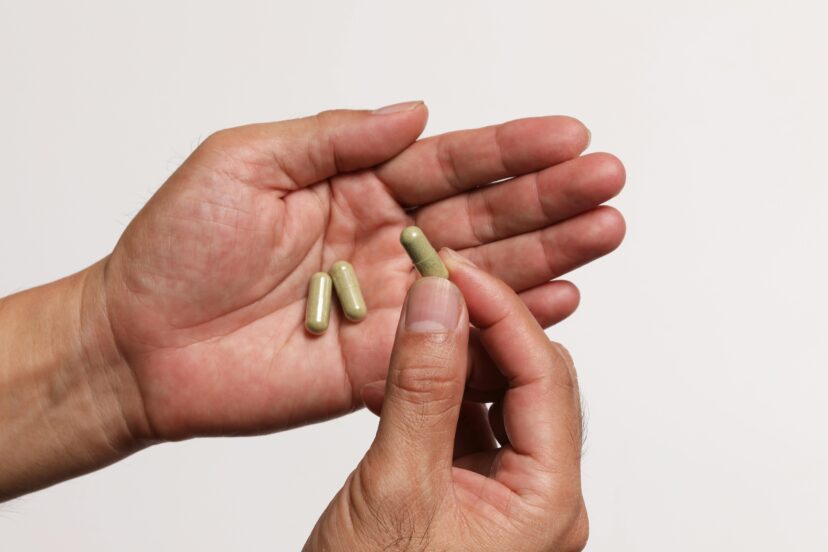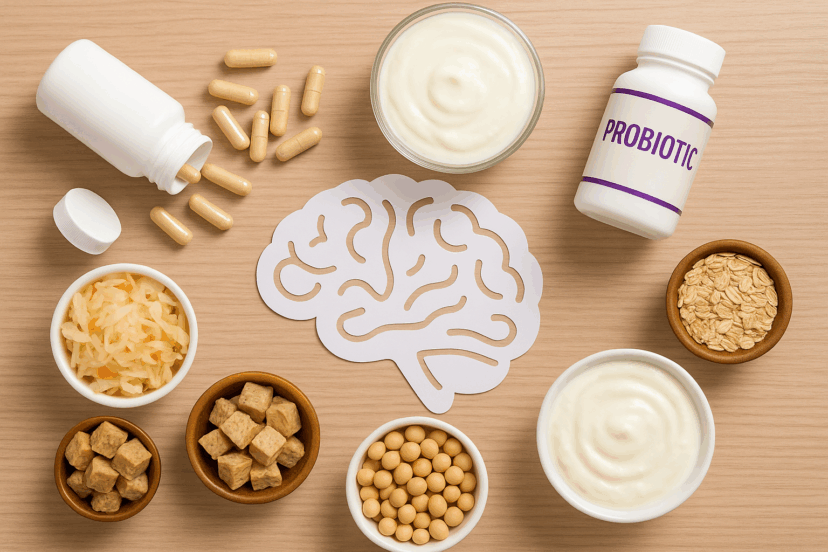Gut-Brain Connection: How Probiotic Supplements Influence Cognitive Health
We may earn a commission for purchases made using our links. Please see our disclosure for more details.
Struggling with brain fog, low energy, or constant stress? These issues often stem from a deeper problem—an imbalanced gut. When your digestive system is off, it doesn’t just affect your stomach; it disrupts the delicate gut-brain connection, impacting mood, focus, and overall mental clarity. It’s frustrating to feel mentally drained even when you’re eating right or getting enough sleep. The good news? You can take control of your cognitive health from the inside out. Probiotic supplements are a research-backed way to restore balance to your microbiome, reduce inflammation, and support sharper thinking and emotional resilience—so your brain can finally feel as good as your body.
Understanding the Gut-Brain Axis
The gut-brain axis is a biological fact, not just a trendy term. Your central nervous system, enteric nervous system, also known as the “second brain” in your stomach, hormones, and even immunological reactions are all part of this intricate communication system.
Trillions of bacteria in your digestive tract actively influence the chemistry of your brain. In actuality, the gut produces more than 90% of serotonin, a neurotransmitter that is important for mood. Dopamine and GABA, which are involved in motivation, attention, and stress response, are also influenced by these microorganisms.
So your mental health may suffer if your gut microbiota is out of equilibrium. On the other hand, taking the proper probiotic supplements to support your gut health may improve your emotional and mental fortitude.
How Probiotic Supplements Influence Brain Health
Let’s break down the specific mental and cognitive benefits tied to probiotic use.
1. Supports Emotional Balance and Reduces Anxiety
A growing body of research shows that probiotics can act as psychobiotics—microorganisms that influence mental health. For example, a 2017 study published in Psychiatry Research found that individuals who consumed probiotics daily experienced fewer symptoms of depression and anxiety, particularly when strains like Lactobacillus helveticus and Bifidobacterium longum were used.
These strains can lower cortisol, the body’s primary stress hormone, and increase levels of GABA, which has a calming effect on the nervous system.
2. Improves Cognitive Performance
In a 2020 Frontiers in Aging Neuroscience study, elderly adults who took probiotic supplements performed significantly better in memory and problem-solving tasks. The improvements were especially noted in executive function, verbal learning, and attention span.
Scientists believe this effect comes from probiotics’ ability to enhance brain-derived neurotrophic factor (BDNF)—a protein linked to memory and learning.
3. Reduces Brain Fog and Inflammation
Chronic inflammation in the gut can lead to a condition called leaky gut syndrome, where toxins enter the bloodstream and trigger systemic inflammation—including in the brain. This can manifest as brain fog, fatigue, and even contribute to neurodegenerative diseases over time.
Certain probiotic strains, such as Lactobacillus plantarum and Bifidobacterium breve, have been shown to lower inflammatory markers like CRP (C-reactive protein) and improve the gut lining, creating a protective barrier against neuroinflammation.

Best Probiotic Supplements for Mental Clarity and Mood Support
When shopping for probiotics, look for those with clinically studied strains and high colony-forming units (CFUs). Below are top-rated products on Amazon that support both digestive and mental health:
Garden of Life Dr. Formulated Mood+
- Features L. helveticus R0052 and B. longum R0175—studied for stress and mood
- Includes organic ashwagandha for adrenal support
- Non-GMO, gluten-free, and shelf-stable
Renew Life Adult Probiotics Extra Care
- Packs 50 billion CFU with 12 diverse strains
- Delayed-release capsules ensure survival to the gut
- Excellent for those experiencing gut-brain imbalances
Culturelle Digestive Daily Probiotic
- Contains Lactobacillus rhamnosus GG—one of the most researched probiotic strains
- Shown to support both immune and cognitive health
- Ideal for beginners or sensitive stomachs
NOW Supplements Probiotic-10
- Affordable yet effective with 10 strains and 25 billion CFUs
- Promotes daily gut-brain support and overall well-being
- Great entry point for routine supplementation
1MD Complete Probiotics Platinum
- Delivers 51 billion CFU from 11 clinically studied strains
- Includes a prebiotic blend to help probiotics flourish
- Designed to support both digestive balance and cognitive clarity
Research Highlights: Probiotics and Cognitive Health
If you’re wondering whether probiotics really work for brain health, the research is encouraging. A 2025 review in PLOS One found that probiotic supplements noticeably improved cognitive performance in people with mild cognitive issues—especially when taken as single strains over 12 weeks or less.
Another compelling meta-analysis from Oxford University Press showed that probiotics had a strong positive effect on cognitive function, with even bigger benefits seen in individuals with Alzheimer’s. The most effective formulas were high in CFU and taken consistently. Together, these studies highlight how targeted probiotic support for brain health isn’t just a trend—it’s backed by real science.
Natural Alternatives and the Role of Food
You don’t have to rely on capsules alone. Certain foods are naturally rich in probiotics and may complement your supplementation:
- Yogurt (with live active cultures)
- Kefir
- Kimchi
- Sauerkraut
- Miso
- Tempeh
Just keep in mind, most of these contain limited strains compared to high-quality supplements. For targeted benefits like anxiety relief or memory support, strain-specific probiotics offer a more reliable solution.
Also, boosting prebiotics (fiber-rich foods like garlic, onions, bananas) can feed the good bacteria, enhancing the effectiveness of any probiotic you take.

Why Gut Health Shouldn’t Be Overlooked
The beauty of focusing on gut health is that it creates compounding benefits—not just for your brain, but for your immune system, skin, energy levels, and digestion.
In fact, many who begin taking probiotics for brain fog report unexpected perks like clearer skin, fewer colds, or better sleep. That’s because the microbiome affects virtually every system in your body.
If you’re curious about stacking your wellness routine, pairing probiotics with brain-enhancing supplements can deliver even more noticeable results. For example, nootropic pre-workouts are designed to boost focus, clarity, and energy—making them a powerful complement to probiotic support, especially if mental performance is your priority.
Tips for Getting the Most from Your Probiotic
To maximize benefits:
✅ Take it at the same time each day, preferably with a meal
✅ Store it properly (some require refrigeration)
✅ Pair it with a prebiotic-rich diet
✅ Avoid excessive alcohol and sugar, which feed bad bacteria
✅ Be patient—results often take 4–8 weeks
Conclusion
The connection between your gut and your brain is real—and powerful. By choosing the right probiotic supplements, you can nourish your gut microbiome and unlock potential mental benefits ranging from better mood to sharper memory.
This isn’t about overnight fixes—it’s about giving your body and brain the support they need to function at their best. If you’ve been searching for a natural way to clear the fog, reduce anxiety, or boost your mood, it may be time to look within—starting with your gut.
FAQs
1. How soon can I feel mental benefits from probiotics?
Many people notice improvements within 2 to 4 weeks, but optimal results often appear after 8 to 12 weeks.
2. Which probiotic strains are best for brain health?
Focus on probiotic strains such as L. helveticus, B. longum, L. plantarum, and L. rhamnosus, as these are commonly linked to cognitive and emotional health benefits.
3. Can I take probiotics alongside antidepressants?
In most cases, yes. But always consult with a healthcare provider before mixing supplements with medication.
4. What time of day should I take probiotic supplements?
Take them with food, ideally in the morning or with your largest meal for better absorption.
5. Are probiotics safe for everyone?
Generally, yes. However, those with immune-compromising conditions should consult a doctor first.




